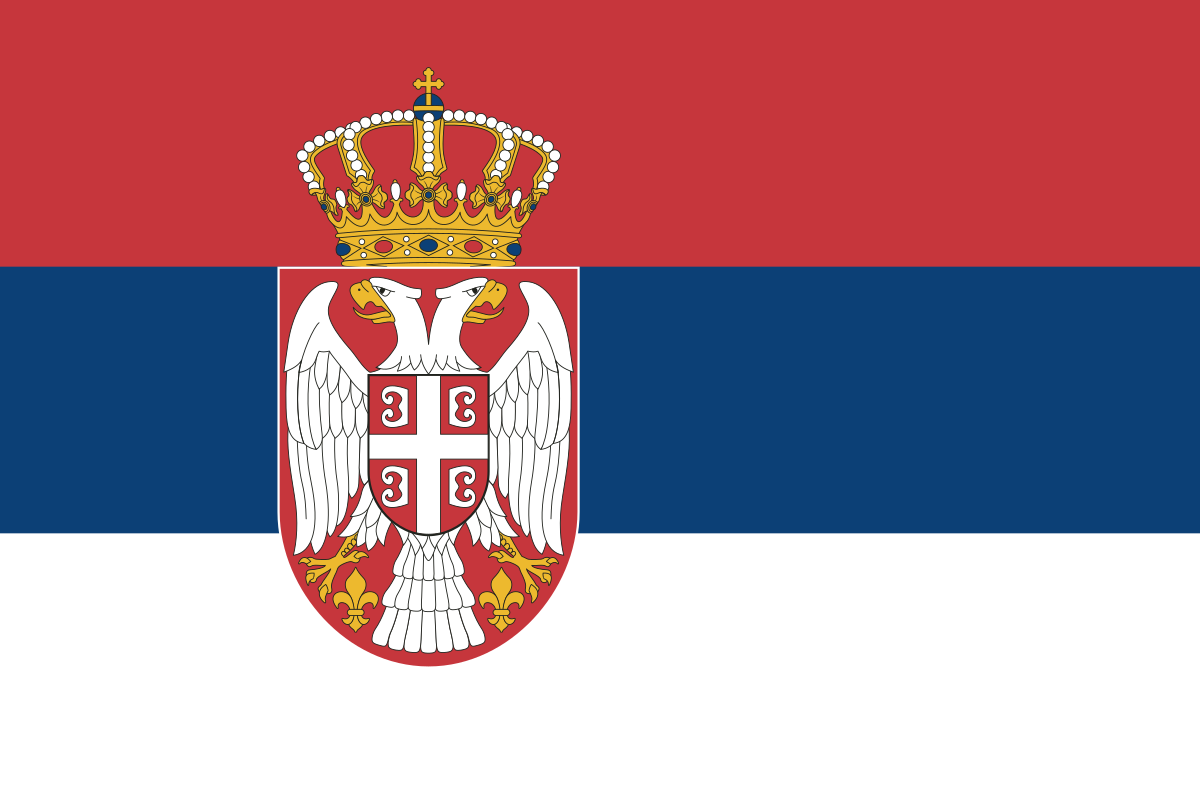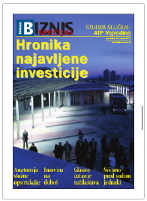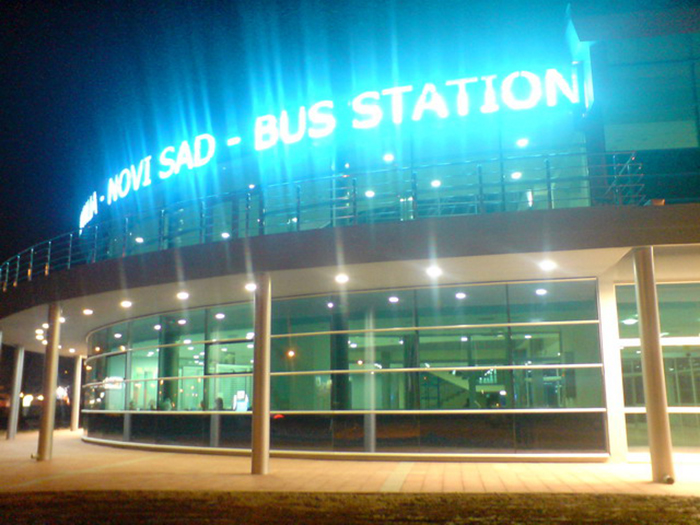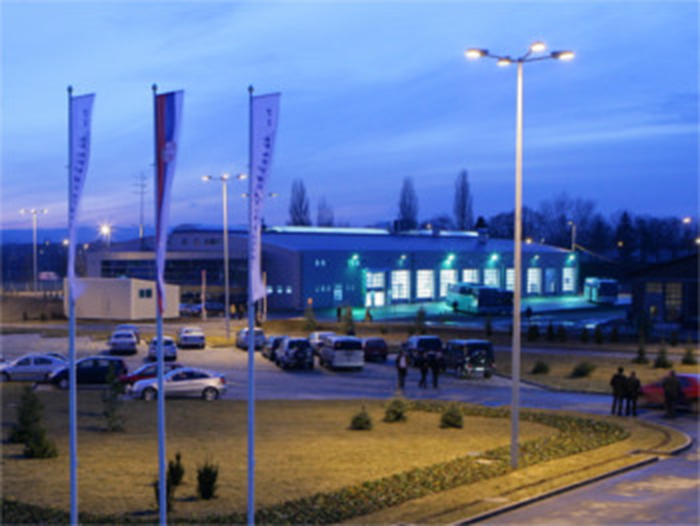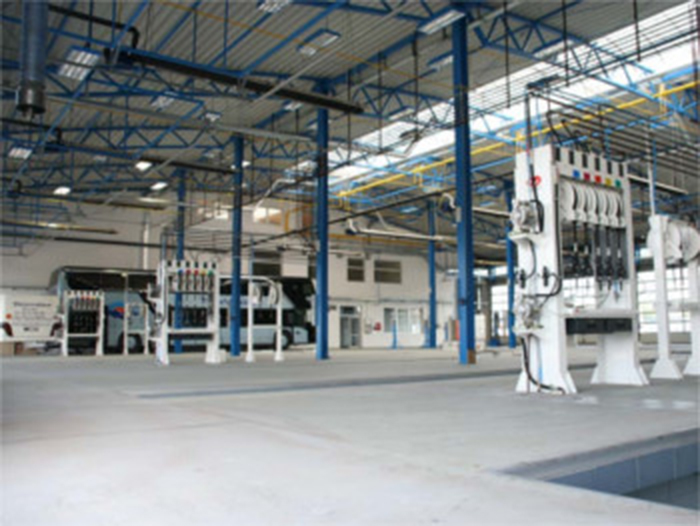25.04.2025. Ilija Dević: Will Judges and Prosecutors Succeed in Defending their Profession?
* I was lured into building a complex with great business potential, only for it to be seized by organized crime through its political intermediaries and pressure on the judiciary
* Who are the judges whose rulings contributed to the expropriation of property?
Just before the Easter holidays, the website of the Supreme Court of Cassation (SCC) published that, the case regarding the revision filed for damages caused to me by the City of Novi Sad had been reviewed. The court’s decision is still unknown.
I remind you that, acting in good faith, based on a contract with the City in 2007, I built a new bus station on the land of ATP "Vojvodina," of which I was the majority owner. This public-interest facility was constructed without subsidies or favorable state loans. The City was only supposed to redirect traffic to the new ATP "Vojvodina" bus station, so I immediately submitted a request for the fulfillment of the contractual obligation upon receiving the occupancy permit (which, to this day, hardly any station in Serbia has).
However, the City failed to fulfill its part of the contract, ATP "Vojvodina" could not generate income, and was driven into a staged bankruptcy. Buses in Novi Sad still arrive and depart from the old station. That station physically cannot accommodate all the buses, so suburban and some intercity traffic are illegally operating without the required permits from the area in front of the Railway Station. These platforms used the (mandatory) canopy of the Railway Station building, which collapsed on November 1, killing 16 passengers. They had been waiting there for their bus departures. Due to the illegal operation of the Bus Station in Novi Sad, I filed a criminal complaint.
Rationale of the Criminal complaint
Amendment of the Criminal complaint
It seems that I was "lured" into building that complex with great business potential, only for it to be subsequently seized by what was already an organized crime network at the time—through its political intermediaries and pressure on the judiciary. This became evident in nearly all court proceedings. Since the Serbian Progressive Party came to power, despite being the largest domestic investor with a transparent source of capital, I have been subjected to political persecution involving the very top of the government, under whose pressure many judges have also yielded. TFor the past 15 years, this political pressure has been orchestrated by Miloš Vučević, whom investigative media have linked to organized crime.
The backbone of all court proceedings is the compensation for the damage caused to ATP “Vojvodina” and to me personally, as I am the majority owner and investor. One of the first decisions made by the newly established SNS government was for the City of Novi Sad to request a revision in 2013 of the final and enforceable ruling awarding €17 million in damages plus interest (for the first four years out of a total of 15 covered by the contract). Had the City paid that amount, no further damage would have occurred—600 workers would have returned to their jobs, the company would have emerged from bankruptcy, Novi Sad would not have had illegal infrastructure facilities, and the tragedy that claimed the lives of passengers would have been avoided.
However, the politicians and “businessmen” had other goals. That is why the revision of the compensation ruling before the Supreme Court of Cassation was strictly controlled. Under the orchestration of Judge Dragiša Slijepčević (still present in the courts despite being retired), the late judge Stojan Jokić reviewed the 1,000-page long case file at the law office of Miloš Vučević, where the ruling itself had been written.
The compensation amount was halved without any expert assessment—done "by estimation" — and the contract with the City was declared null and void, although the court acknowledged that the City had caused damage and must pay for it. Judge Slijepčević and the late Stojan Jokić creatively came up with the formulation that this had "exhausted the right to further compensation." This would imply that the City no longer has an obligation to pay damages, even though the contract remained in effect until 2021.
Moreover, the term "exhausted right to compensation" is extralegal — it does not exist in the law — and neither the revision court nor the lower courts that followed provided any further explanation or indicated the legal basis on which they grounded the opinion that the right to compensation can be exhausted in terms of time or scope. Nevertheless, that ruling served as a precedent, and judges continued to cite it in subsequent cases involving claims for damages.
Thus, the Supreme Court of Cassation also reviewed the case concerning the personal damage I suffered as the majority owner and investor, due to the City’s failure to honor the contract. This case was “assigned” to Judge Branislava Apostolović, a family friend of Miloš Vučević, who was brought into the Supreme Court from Novi Sad specifically for this task and received all the paid positions previously held by Judge Nata Mesarović. An additional benefit was the appointment of a relative to a high political post—Deputy Mayor of Novi Sad.
Judge Branislava Apostolović handled the aforementioned 1,000-page case in just 10 days. To ensure further control within the Supreme Court of Cassation, Vučević brought in Judge Tatjana Miljuš from Novi Sad along with another 10 judges from Vojvodina, who were expected to carry out assignments as directed.
The expropriation of my capital was particularly evident through the bankruptcy process. The assets of ATP "Vojvodina" were sold off, while the new station and service center were handed over to fictitious buyers at prices lower than the cost of the construction materials. Compensation claims, from which creditors could have been reimbursed, were not forwarded to the Supreme Court of Cassation for a decision, but instead were held for three years in the archives of the Commercial Court in Novi Sad. These unlawful and damaging actions—both to the company and its creditors—were overseen by bankruptcy judges Slobodanka Komšić and Vladislav Kurtek, with the support of the court president, Gordana Ristić.
In January of this year, the Supreme Court of Cassation once again rejected the compensation claim. Since I have legal standing, I filed a Constitutional Complaint and initiated a request for the bankruptcy administrator of ATP "Vojvodina" to do the same, in the interest of more than 500 creditors. Yet again, pressure from Miloš Vučević was felt—directed at court president Gordana Ristić as well as at the presiding judge and the bankruptcy administrator—to prevent the filing of the Constitutional Complaint. I hope that the Association of Judges and Prosecutors, which advocates for the defense of judicial integrity, will influence the High Judicial Council to review the conduct of Judge Gordana Ristić in this case—one of the largest bankruptcies in the country—though it is not the only one in which she has been involved in a similar manner.
Finally, legal professionals are well aware of the position taken by the European Court of Human Rights in Strasbourg in the case of Gradiševa v. Russia. That ruling has become binding for all signatory states of the European Convention on Human Rights and Fundamental Freedoms. It clearly states that individuals acting in good faith must be protected from the legal consequences of errors made by the state, local authorities, or state-owned enterprises. If a contract was concluded by the state, a local authority, or a state enterprise (in this specific case, the City of Novi Sad), they cannot later invoke the invalidity of certain provisions or the entire contract that they themselves signed. The state—viewed at all levels of government—is the cornerstone of legal certainty, responsible for upholding the rule of law, and therefore cannot legally justify entering into contracts that are partially or entirely invalid. Even if such a situation occurs, the other contracting party and third parties cannot bear the harmful consequences.
Sincerely,
Ilija Dević, Investor of ATP ”Vojvodina”
